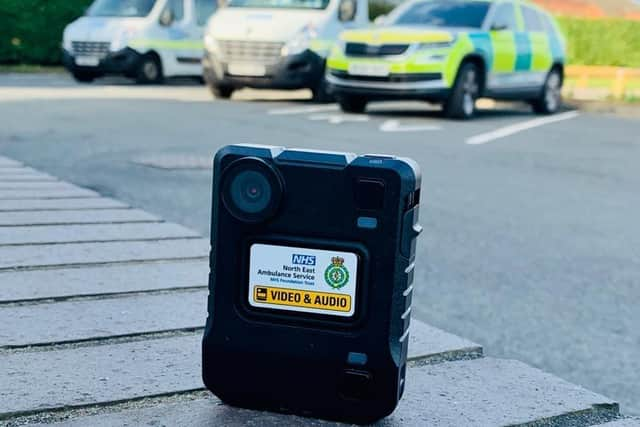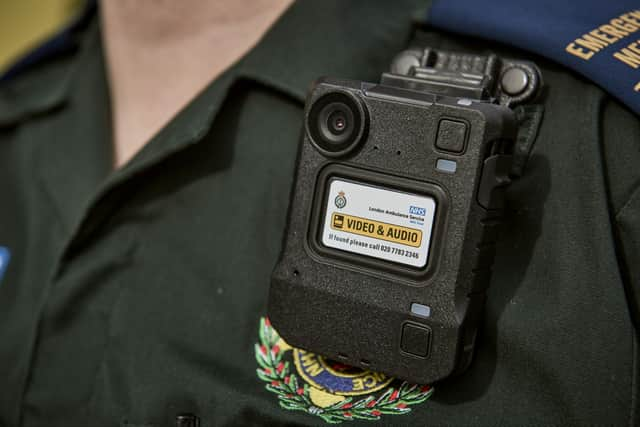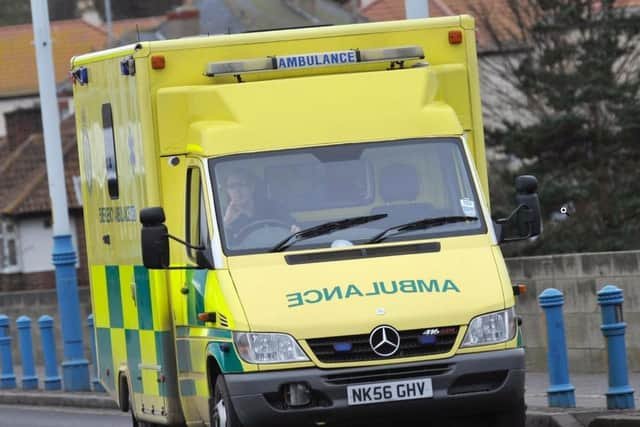Frontline ambulance workers to wear cameras in bid to drive down rise of violence and aggression
and live on Freeview channel 276
All North East Ambulance Service vehicles are fitted with CCTV, but with two thirds of incidents happening away from a vehicle, the service is keen to protect staff further.
It was the first ambulance service to trial body worn video cameras in 2018, with around 40 of its workers putting the kit to the test.


Advertisement
Hide AdAdvertisement
Hide AdThe trust won NHS England funding to buy 160 more cameras last year and now received cash for a further 200, meaning every station will have access to a camera.
The technology helps gather evidence for criminal convictions and deters and helps de-escalate situations.
So far this year, it has already recorded 252 incidents, with alcohol the single largest contributory factor, followed by mental health and drug misuse.


Darren Green, clinical services manager, said: “Nobody comes to work to be abused, but especially not when they are here to help people; often the people abusing them are the very people who called them for help.
Advertisement
Hide AdAdvertisement
Hide Ad“We’ve all had an incredibly tough year but sadly abuse on our staff has continued to increase, meaning these cameras are needed more than ever.”
Hartlepool-based paramedic Tony Traynor added: “It focuses minds; I’ve warned people that I’m about to turn it on twice and each time they’ve changed their behaviour.
"A lot of the time it can be a case of he said, she said but the cameras provide that video evidence that they can’t argue against.”


Courts can impose a maximum of 12 months in prison and/or unlimited fine on anyone found guilty of assaulting an emergency worker, with a bill going through Parliament to double this.
Advertisement
Hide AdAdvertisement
Hide AdNEAS successfully campaigned last year to double the maximum sentence to two years imprisonment, calling on courts to use the full powers available to ensure sentencing acts as a deterrent and punishment.
Assaults can have a lasting impact, ranging from marriage breakdowns to leaving the job, while the issue also leads to staff sickness and the overtime cost of covering missed shifts.
Between April 2017 and October 2019, NEAS lost 411 days to staff sickness at a cost of £141,824 in overtime to cover missed shifts following an assault.
